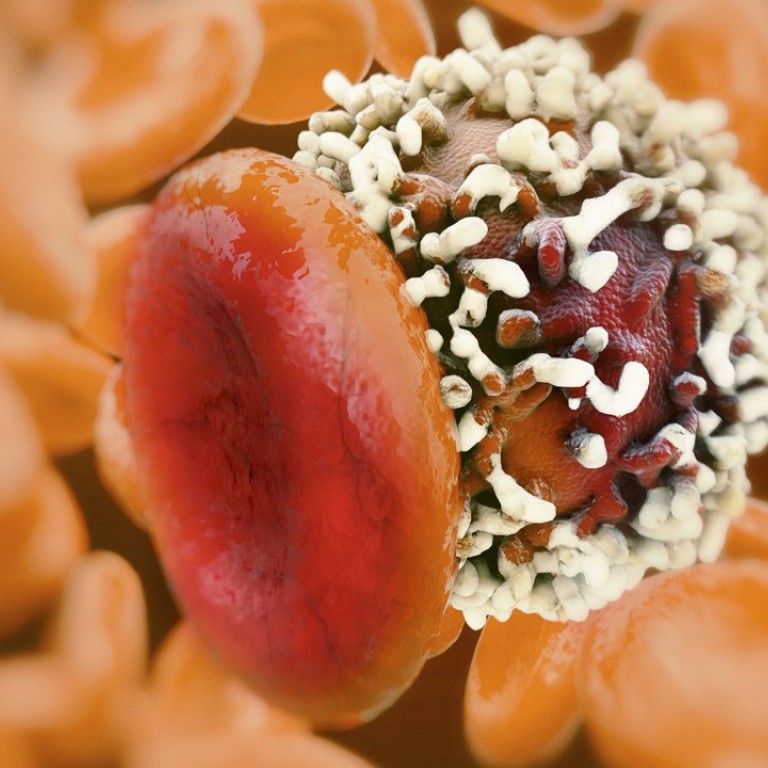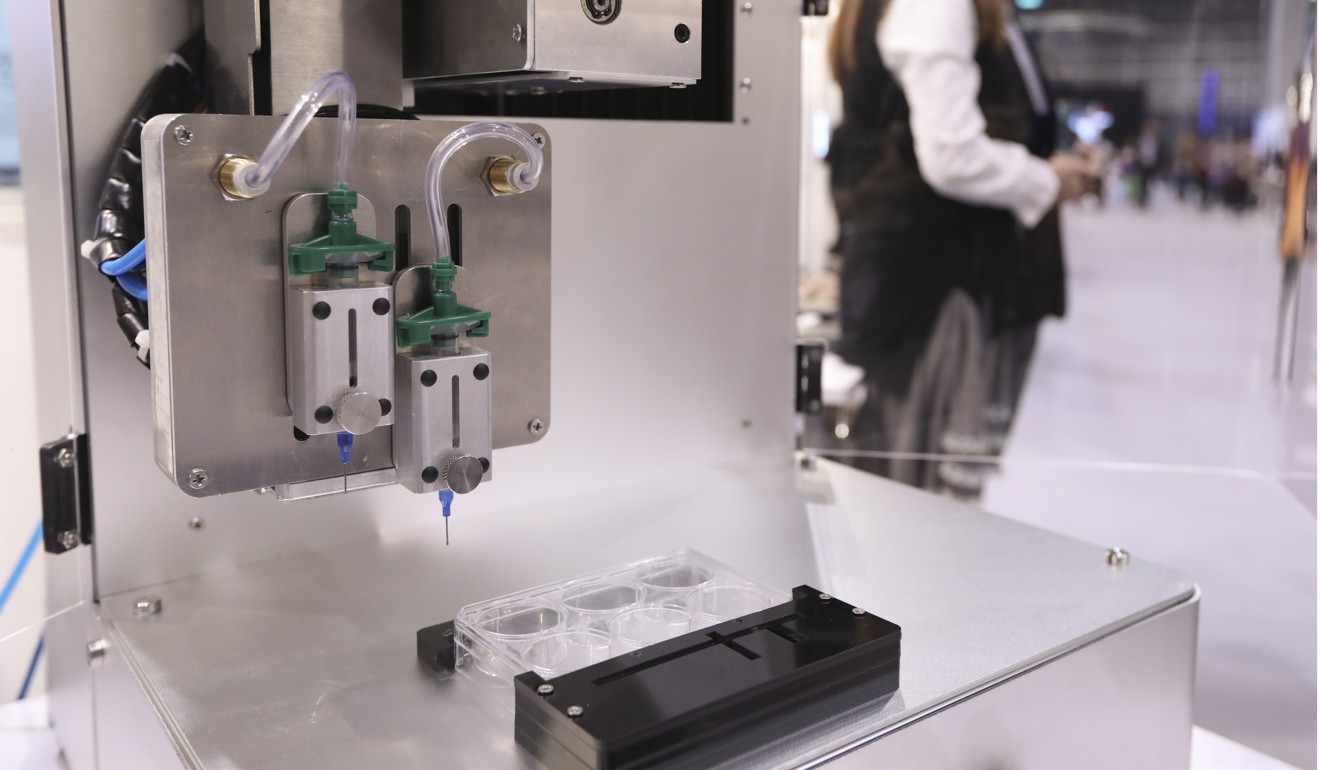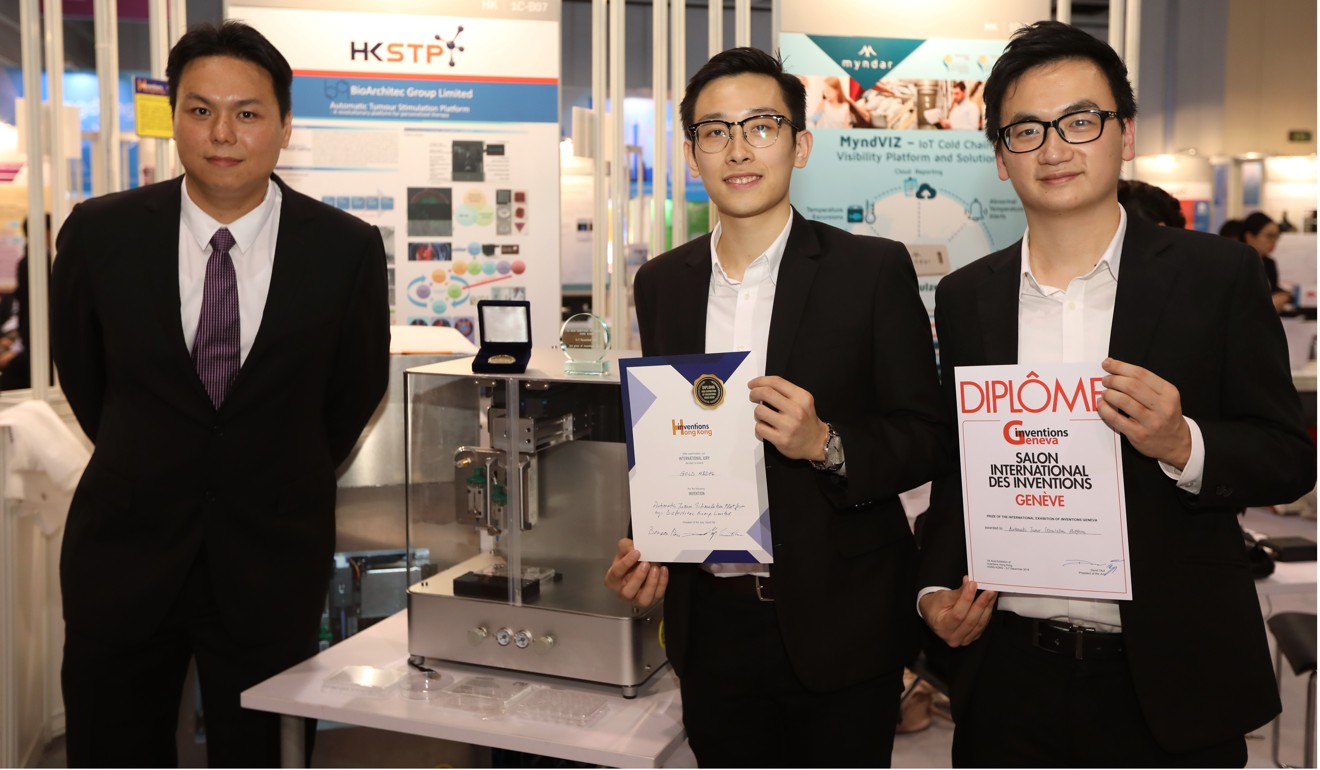
Tumour mimicking machine by Hong Kong team wins prize at Asian edition of prestigious Swiss-based innovation awards
- Some 43 teams from universities and companies across China submitted entries for Asian offshoot of International Exhibition of Inventions Geneva
A machine that mimics the structure of tumour cells to more accurately test the efficacy of cancer drugs has bagged two prizes at the first Asian edition of a prestigious Swiss-based innovation competition.
Entrepreneur Jonathan Lam Chung-wai and his team spent three years designing and building the automatic tumour simulation platform.
Their efforts finally paid off on Thursday when they took home two awards at the 1st Asia Exhibition of Inventions Hong Kong – an Asian offshoot of the International Exhibition of Inventions Geneva.
Some 43 teams from universities and companies across China submitted entries for the contest, which was organised by the Hong Kong Exporters’ Association.
Lam and the team took home a gold medal as well as the event’s 3rd Geneva Invention Award.

The CEO of biotechnology company BioArchitec Group said he and colleagues Kelvin Pong Chiu-chin and Sam Chow Chun-to only managed five to six hours’ sleep a night in their three years devising the machine, such were the demands of the project.
The box-shaped device, not much bigger than a microwave, can simulate the three-dimensional structure of a tumour cell. It can also divide cells extracted from real tumours into tiny and consistently sized portions, to more reliably test how they respond to drugs.
How tightly should China regulate tech innovation without strangling engine for economic growth?
“In existing laboratories and research organisations, they structure the cells in a two-dimensional way, in a monolayer. But this cannot reflect reality because a tumour, a cell or tissue comes as a three-dimensional structure,” Pong said.
The team partnered with the Chinese University of Hong Kong and a Guangdong hospital to carry out trials on their invention. They hope to officially launch it next year.
On cost, Lam said they were yet to calculate how much had been invested, but he estimated the figure was seven digits.

“We are afraid to find out the number. If we really do calculate it, we will likely be very sad,” Lam said with a laugh.
The Hong Kong Science and Technology Parks Corporation helped them set up the partnership with Chinese University, and played host to their start-up as they worked on the project.
“We joined the Science Park a year and a half ago. If we hadn’t, we wouldn’t have survived this long,” Lam said.
The park, an incubation zone for tech start-ups, is part of efforts by officials to make Hong Kong a “smart city”.
In October, Hong Kong leader Carrie Lam Cheng Yuet-ngor proposed funding of HK$28 billion (US$3.58 billion) for university research, reindustrialisation, the application of technology to the city’s public services, and for the IT sector. The amount would be in addition to HK$50 billion already earmarked in Hong Kong’s budget this year.
Don’t rely only on government, top Hong Kong oncologist Tony Mok tells young researchers in innovation, technology sector
The government has facilitated Science Park tenants to run trials of their inventions in the public sector.
Palmeco Tech, which supplies green building materials, won the Grand Award and a gold medal at Thursday’s contest with its Palmeco Geo-Insulator, part of a high-performing insulated wall panel made of fly ash, a by-product of power plants and palm fibre.
Palmeco Tech director Jennifer Ho King-chi said she had tried in 2013 to apply for innovation funds from the government, but the large amount of administrative work required put her off.
Ho and husband Wilfred Lau Chiu-kam, who together founded the company, then decided to go it alone and fork out more than HK$20 million in investment from their own pockets.
Ho said she felt support for innovation had strengthened in the last three years, but many people still needed to change their mentality.
“Many customers have said to us: has anyone tried this? Do you have any track record? But we are talking about innovation – you have to be the first one,” Ho said.
She said the government must take the lead in trying out new products so as to provide more opportunities for small and medium-sized enterprises, in particular young businesspeople with limited funds.
Hong Kong universities and start-ups have been a regular feature at the awards in Geneva. In April Polytechnic University beat 800 entries from around the globe with a solution to delay the progression of short-sightedness in children.

